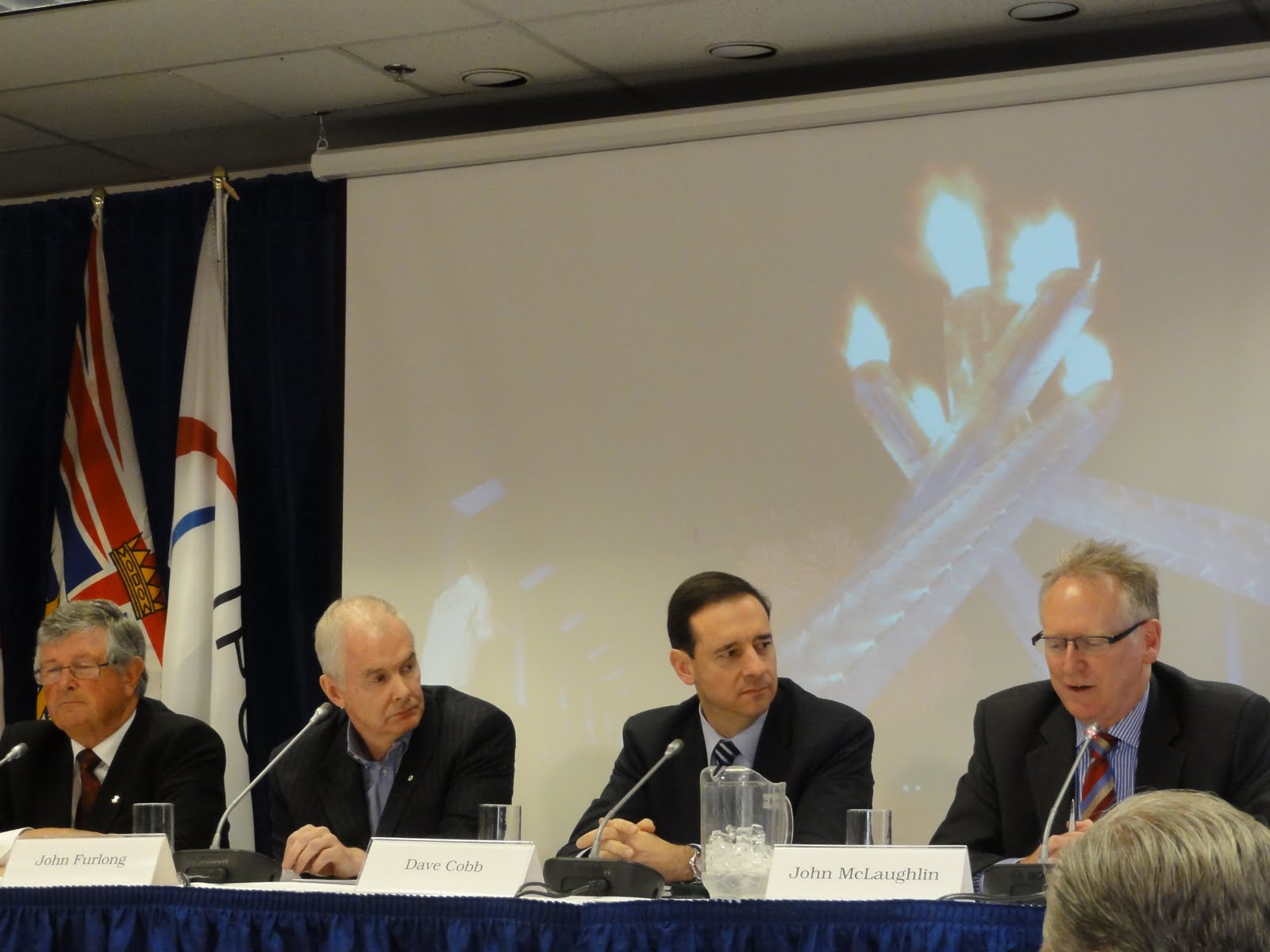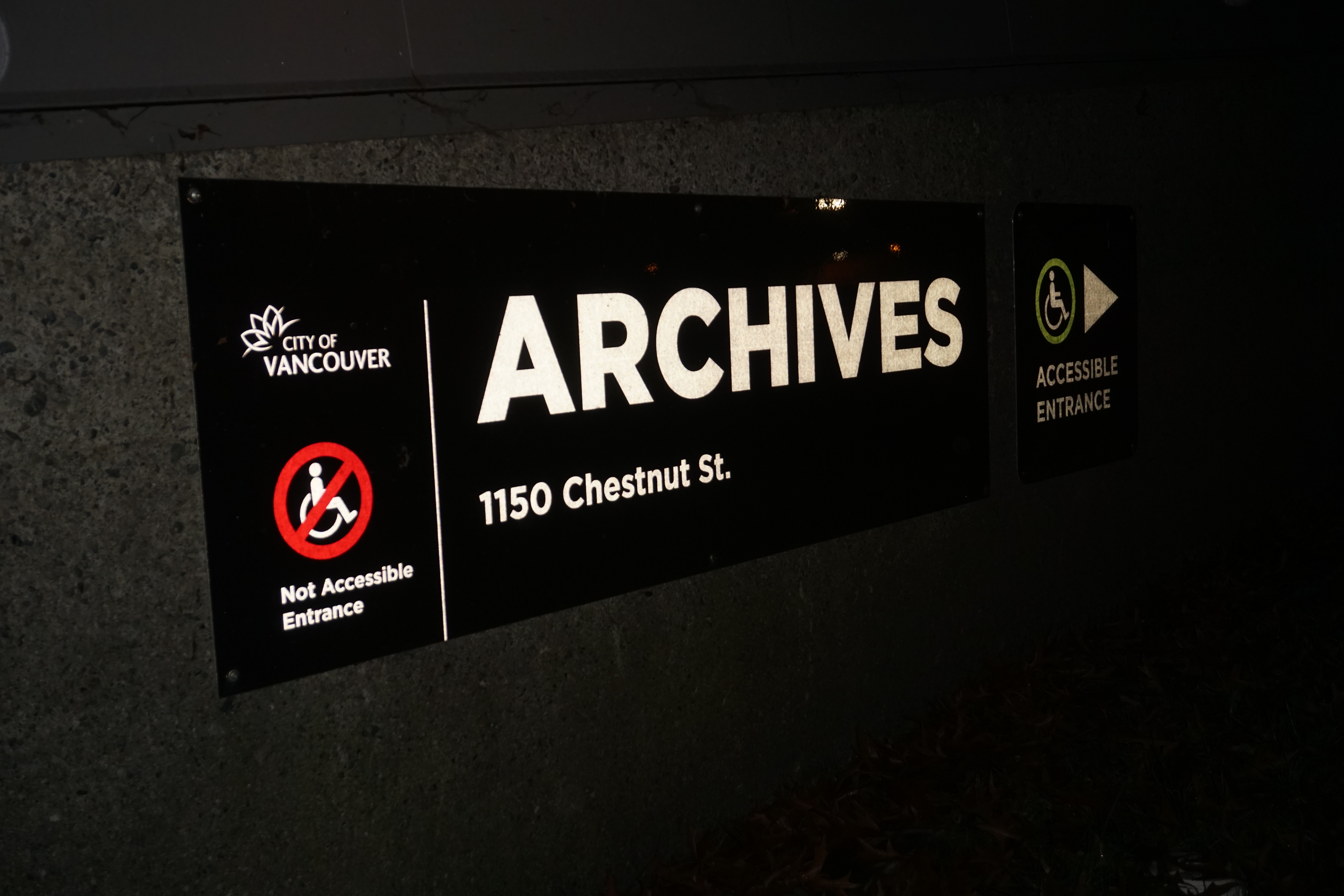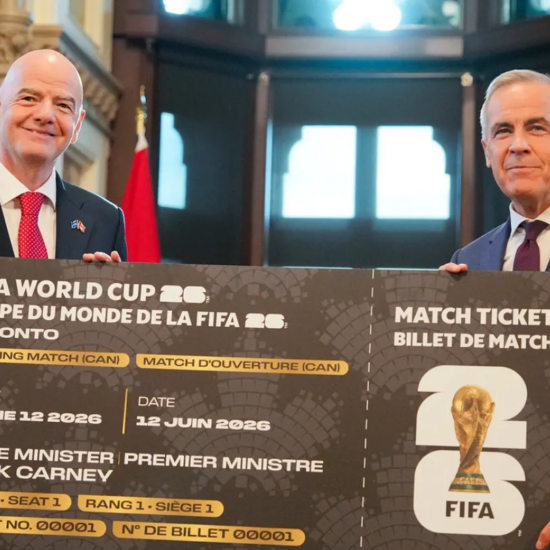
Bob Mackin
“I think you have to have all the information. To put a question to people without proper information and real costs and real data — I can’t imagine that you’d put that to the voters and think that that’s acceptable.”
That is what John Furlong, the CEO of Vancouver’s 2010 Winter Olympics organizing committee (VANOC), told the Calgary Herald in March. Will Nov. 13 plebiscite voters find it acceptable that they really don’t have all the information?

John Furlong (second from left) at the last VANOC news conference in December 2010 (Mackin)
The Yes campaign did publish cost estimates in September that it revised at the end of October, but none of the governments behind Calgary 2026 has agreed to cover cost overruns. Unlike Vancouver voters in 2003, Calgarians won’t see the bid book until January and the athletes village site is unknown.
The athletes village is the most troublesome venue to finance, build, operate and hand over. Taxpayers bailed-out Vancouver’s $1.1 billion Southeast False Creek complex when the Great Recession hit in 2008 and the Wall Street financier withdrew. Post-Games condo sales tanked and lawsuits were filed over shoddy workmanship. The village went into receivership in late 2010. The owners of the Vancouver Canucks scooped the remaining luxury condos for a tax loss in early 2014.
Calgary bidders pared the 2026 security budget just below half-a-billion dollars. It was $900 million in 2010, after Vancouver’s post-9/11 bid book suggested a lowball $175 million. The second word is eternally true in the Olympic motto (“citius, altius, fortius”); Games costs go higher.
Meanwhile, facts and data become harder to access.
How can Calgarians trust the $5.1 billion price tag for 2026 when British Columbians don’t really know how much the 2010 Games cost? B.C.’s Auditor General never did a final report.

Vancouver Archives, where Vancouver Olympic board minutes and financial books are sealed until 2025 (Mackin)
The $7 billion ballpark estimate includes the Canada Line airport-to-downtown train, Sea-to-Sky Highway to Whistler and Vancouver Convention Centre. The latter was built for $885 million, 78% higher than the original budget. The organizing committee took an extra two years, until summer 2014, to claim it balanced a $1.9 billion operating budget — $600 million more than the 2003 bid book said.
VANOC was incorporated as a private entity, beyond the freedom of information law. The government-appointed board never met in public. Reporters relied on leaked documents and confidential sources to learn what was really going on behind the scenes.
Don’t be fooled by Joe Ceci’s Oct. 12 letter to federal sport minister Kirsty Duncan and Calgary mayor Naheed Nenshi. The Alberta finance minister’s vague words about subjecting Calgary 2026 “to provincial transparency and freedom of information laws, or other equivalent rules or regulations” only sound nice in theory.
Alberta charges $25 for each FOI request, five times more than a federal access to information request. In B.C., there is no application fee.
The FOI law contains loopholes that allow bureaucrats to censor, delay, deny and charge additional fees. Alberta Information and Privacy Commissioner Jill Clayton said two years ago that “access to information is fast approaching a crisis situation.”
Clayton complained of government offices applying for time extensions, failing to meet disclosure deadlines, refusing to provide records to her investigators, and going to court to challenge her authority to access records for investigations. Under the Notley NDP government, she wrote, there had been “no concrete action to update and modernize Alberta’s access to information legislation.”

Cover of Red Mittens & Red Ink: The Vancouver Olympics (Mackin)
Furlong and the rest of VANOC were in no hurry to show the public how they put the 2010 Games together. VANOC transferred its files to the Vancouver city archives, on the condition that the public won’t see board minutes, correspondence, procurement and payroll before the fall of 2025, around the time that the Calgary 2026 Olympic flame would be lit. That is, if Yes wins Nov. 13 and the International Olympic Committee picks Calgary on June 23.
So it was fitting that bid boosters brought 1988 underdog ski jumper Eddie “The Eagle” Edwards back to Calgary.
Voters are being asked to take a leap of faith. At least Edwards had glasses to see where he was going.
- Multimedia journalist Bob Mackin was the Sun Media Vancouver 2010 beat reporter and authored the e-book, Red Mittens & Red Ink: The Vancouver Olympics. He has covered five Olympic Games.
Support theBreaker.news for as low as $2 a month on Patreon. Find out how. Click here.











